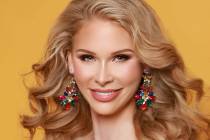‘WWJD’ inscription misses key part of Jesus’ message
Perhaps you've seen it these past several years: "WWJD?" The letters ask the question, "What would Jesus do?" Most commonly I have seen "WWJD" on bracelets, but also on banners, bookmarks, posters and even tooled into leather Bible covers.
Predominantly in Evangelical Christian circles, WWJD has emerged as a dynamic symbol. Oh, certainly this new symbol does not have the time-honored power of other Christian symbols -- the cross, bread, wine, water -- but it has become for many an engaging symbol of the modern faithful. And, as a symbol, it communicates three things:
1. A WWJD bracelet is, in itself, a spiritual discipline. A reminder. It means to ground its wearer's every thought and act in the ultimate measure (for Christians) of right and proper living: Jesus.
2. The bracelet embraces an identity. Namely, its wearer does not identify with his/her own ideas, desires, instincts or personal will. Rather, the wearer's identity is grounded in the life, character and values of someone else: Jesus.
3. The bracelet is a strategy for evangelism; that is, calling others' attention to both Jesus and Christianity as a desirable way of life. WWJD promotes the faith. Put crudely, it's a marketing strategy.
Now, I tread gingerly, cautiously and respectfully into this discussion. I have no motive to disparage, nor to call motives into question. Absolutely not. If you own a WWJD bracelet, if you've admired people who wear them, if you've aspired to acquire and wear one -- then good for you.
Nor do I enter this discussion because I'm actually a Christian evangelist undercover, merely disguised as a columnist. The only credentials you'll ever need to be part of the Human Matters family is the ability to read and the willingness to think and feel. After that, your religion (or no-religion) is your business.
No. What has caught my eye is a question about the completeness and accuracy of the symbol itself. Strictly speaking, I worry that it is both theologically and psychologically misleading. In error. At least incomplete, sufficiently so as to be easily and widely misunderstood.
First, the psychology ...
Psychology, as a whole, is a lot friendlier to religiosity than widely thought. Both Freudian and Jungian psychology, for example, are useful models for inquiring after the measure of healthy religion. Or unhealthy.
C.G. Jung especially was compelled by what he observed as the "religious instinct" -- the drive inside every human heart for transformation and wholeness, the instinct to reach for some paradigm greater than self as the only real path for finding a whole self.
Yes, Jung agreed, inside every human heart is a personal archetype of the divine. Jews might call this the Imago Dei (the image of God). Jung, reflecting his own Western culture, called it the Christ archetype.
But Jung issued a stern warning: Thou shalt not ego-identify with the collective Christ archetype. That's fancy psychoanalytic talk for "thou shalt remember thou is not God."
Next, the theology ...
In baptism, God does not call folks to be Jesus. Neither has God called a Christian's best celebrity impersonation of Jesus. God calls the inititate. The unique person. What Christians imitate in Jesus is not Jesus. They imitate the way Jesus was willing to be wholly and authentically Jesus, even at the cost of reputation, family and eventually his own life. Jesus does not come into the life of a Christian pilgrim to transform him/her into himself. No, he comes to transform people into themselves. Their whole and authentic selves.
Jesus doesn't say, "Pick up my cross and follow me." He doesn't say, "Help me carry my cross and follow me." He says, "Pick up your cross (the cross that is uniquely your own life) and follow me."
What would Jesus do? He would be himself. I'm going to design a bracelet that says WWSDRNIH-WWTTTROBWAAS -- "What would Steven do right now if he was willing to take the risk of being wholly and authentically Steven?" Gonna have to be a very big bracelet or very small letters.
Probably won't be a big seller in religious bookstores, either.
Steven Kalas is a behavioral health consultant and counselor at Clear View Counseling Wellness Center in Las Vegas and the author of "Human Matters: Wise and Witty Counsel on Relationships, Parenting, Grief and Doing the Right Thing" (Stephens Press). His columns appear on Tuesdays and Sundays. Questions for the Asking Human Matters column or comments can be e-mailed to skalas@reviewjournal.com.












